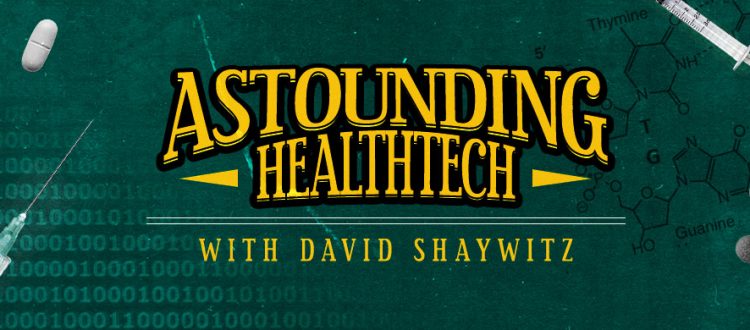ICYMI – Recommended Reading and Listening for Biotech Innovators

David Shaywitz
Searching for a good listen or an interesting read? Here are my latest suggestions.
Everything is awesome!
Looking for something thoughtful and uplifting? A great place to start is this recent interview with tech VC Marc Andreessen, who discusses, persuasively, why he is still so optimistic about technology. Particularly useful: Andreessen’s ability to contextualize the evolution of technology, including the predictable critique, which as he points out was associated with even such radical advances as the teddy bear and the bicycle (celebrated at this website, “The Pessimist’s Archive”).
Citing the classic (1966) writing of MIT professor Elting Morrison, Andreessen notes that most transformative technologies go through stages where they’re first ignored, then rationally criticized. When this fails, Morrison says, “the name calling begins.” Of course, as Andreessen acknowledges, every new technology doesn’t represent a good idea – although he argues many failed ideas are simply “too early.”

Marc Andreesen
Famously, Andreessen believes in founder-CEOs (versus professional managers who might assume a CEO role). As Andreessen has presumably discovered, there’s actually a podcast that focuses exclusively on the story of founders – specifically founders who have created businesses that have stood the test of time. The podcast, appropriately called “Founders,” is the brainchild of innovation enthusiast David Senra, and the premise is remarkably simple: Senra reads biographies (often autobiographies) of founders, or essays about founders, and then discusses what he’s learned, in exquisite and engaging detail, week after week. It’s an exceptional resource, and highly recommended.
Surveying the Landscape
At their best, good management consultants leverage their breadth of industry experience to offer relevant insights to perpetually overwhelmed executives trying to keep their heads above water. Three recent contributions (all open access) from McKinsey that are worth your time include:
- The Helix Report – an assessment of the current state of biopharma, with an eye towards future challenges. The disconnect between areas of pharma focus and areas of unmet need, while not surprising, is one particularly striking finding. Another: the remarkable growth of companies McKinsey describes as “ecosystem players” – essentially, toolmakers, like Thermo Fisher and Danaher, that provide many of the core technologies upon which pharma relies.

Anne Klibanski, president and CEO, Mass General Brigham
- Interview of Dr. Anne Klibanski – a captivating discussion with the CEO of Mass General Brigham. Admittedly, I am somewhat biased – Anne, a distinguished neuroendocrinologist, was my clinical mentor during my endocrinology training at MGH, and is an extraordinary teacher, researcher, clinician, and human being. The McKinsey interview captures these qualities, as Anne discusses her career journey, and the critical need in both medicine and science for multiple different perspectives, values she authentically lives and has consistently exemplified and championed.
- AI in biopharma research – perhaps my most ambivalent recommendation of the three. Essentially, the premise of the article is that AI needs to be incorporated into research workflows, and when biopharmas do this, “we have observed significant impact along the value chain.” Since generally biopharmas are just beginning to figure out how to leverage AI systematically in research, I suspect early reports of effective practices may be greatly exaggerated. (See also my last TR piece on the failure of AI, so far, to meaningfully impact the area of greatest need in biopharma – improved translational models.) Nevertheless, my hunch is that the advice offered by McKinsey is directionally correct: there’s a huge opportunity for biopharmas to incorporate AI systematically in research. It will be particularly interesting to follow the progress at Genentech, where Aviv Regev, formerly of the Broad Institute, is leading early research efforts. She brings what might be called a digitally native mindset to the South San Francisco operation.
Although venture capitalist Bruce Booth left McKinsey years ago, the clarity of his annual Atlas Venture year-in-review presentations does his alma mater proud. This year’s talk – available on YouTube – is once again exemplary, stepping us through the macrotrends and market pressures, and providing insights into how Bruce and the team at Atlas see the opportunity space for future early-stage biotech investments. One particularly striking slide presented the cash individual large pharmas have on hand; it turns out that J&J and Pfizer are each sitting on around $33B of cash, potentially available for future acquisitions.

Bruce Booth, partner, Atlas Venture
Given the outsized contribution of externally-sourced products to pharma revenue (another remarkable slide), one wonders if this will become another example of accumulated advantage, where those who start with the most to begin with will be best positioned to accrue still more. (Also striking: a slide showing the swarming behavior of biopharmas, in this case, the more than 110 CD-19 CAR-T products in the pipeline).
Think Different
If there’s one thing business executives and technologists can agree on, it’s that the best way to make progress is to set ambitious goals, then monitor progress, adjusting course as necessary along the way. Right? Well, maybe not. While this approach may work for relatively straightforward goals, AI scholar Ken Stanley argues, it actually doesn’t really work for super ambitious goals, where we don’t even know what the stepping stones are. “Almost no prerequisite to any major invention was invented with that invention in mind,” Stanley asserts. In essence, he argues – based on captivating examples from AI research – that if you want to achieve something profound, you’re more likely to get there by the pursuit of the interesting; “honor interestingness,” he advises. While this approach may not lead you to a specific goal, it is more likely to lead to something profound than more direct attempts to arrive as the same ambitious destination. Listen to Stanley make his case in this interview with Patrick O’Shaughnessy, host of “Invest Like The Best,” here.
Bedside Rounds describes itself, accurately, as a podcast “about fascinating stories in clinical medicine. Hosted by internist Adam Rodman, a hospitalist at Boston’s Beth Israel Deaconess Medical Center, the show offers a thoughtful, humanistic, generally historical perspective on topics in medicine. A pair of recent episodes – here and here – stand out, as they focus on the way doctors have approached and attempted to systematize the collection of information from patients. Rodman is joined on these two episodes by one of medicine’s most gifted diagnosticians, UCSF’s Gurpreet Dhaliwal. Of particular relevance to healthtech readers, Rodman and Dhaliwal describe subtleties of medical data that may not be obvious to data scientists. For example, Dhaliwal describes the difference between information gathered from a questionnaire (for example, a patient checking a box next to the statement “I do not have a fever”) and information Dhaliwal elicits from a patient. Dhaliwal says this is the difference between “building truth with the patient” and “accepting it as a binary construct.” Dhaliwal clearly understands the concept of data empathy — and of empathy more generally.
Most everyone today recognizes the importance of cybersecurity, including in healthcare, as Eric Perakslis, among others, has eloquently reminded us. Even so, we’re not likely to be drawn to podcasts focused on cybersecurity – which is what makes “Click Here” so extraordinary. Hosted by NPR veteran Dina Temple-Raston (she is also the executive producer), Click Here features captivating, well-constructed narrative-driven stories that relate to cybersecurity, but focus on people, taking us from Ukraine to digital health surveillance to violence-as-a-service (!) to cold war espionage, educating, entertaining, and gently terrifying us along the way, even as we eagerly await the next installment.
Meet Me At Camera 3
As long-time Daily Show fans may remember, when Jon Stewart had an important message to convey with brutal honestly to viewers, he’d urge them to meet him at Camera 3 (see this classic example). For those seeking this spirit of uncomfortable candor, here are several considerations.
Among the most memorable experiences I’ve had in consulting and in biopharma have been the opportunities to observe, through a one-way mirror, a focus group, individuals who are convened to discuss (in a facilitated conversation) a particular condition or product. Frequently, their actual experiences and priorities are vastly different than what conventional wisdom might have dictated. You can get a feel for this in “The Focus Group” podcast, featuring political strategist Sarah Longwell. The appeal of the podcast is that it provides a relatively unfiltered opportunity to hear what people actually think, including people you might not typically encounter, discussing perspectives you might not typically hear expressed, on all sides of the political spectrum.
In the gauzy world of LinkedIn (“… humbled to be honored…”), effusive corporate PR, and giddy entrepreneurs (“crushing it!”), it can be easy to lose perspective on some of the grueling verities of our work. I can imagine no better tonic than this blog post, describing in excruciatingly painful, all-too-familiar detail the preposterous dance biopharmas do with contract research organizations (CROs) in the course of preparing to conduct clinical trials. As we watch the author’s vitality and ambition slowly extinguished by inexorable bureaucratic processes, we share the author’s sentiment that there must be a better way.

Jeffrey Pfeffer, Thomas D. Dee II Professor of Organizational Behavior, Stanford Graduate School of Business
Finally, there is Stanford Professor Jeffrey Pfeffer, who has managed to write a series of utterly essential business books (including Power, Leadership BS, and his latest, 7 Rules of Power) that effectively have been banned from the corporate canon. No HR exec is going to pay thousands of dollars to bring in a distinguished speaker who will tell employees that their bosses probably got there through the skillful deployment of self-serving, often inauthentic behaviors – behaviors the same leaders now actively discourage as they seek to preserve the status quo. It’s not that Pfeffer encourages such distasteful behavior; rather, his view is that if you are, or are planning to be, part of any organization, then the data suggest these are behaviors you are likely to encounter and will need to be ready to handle. Pfeffer offers the critical business books (and now, podcast series) you need, even if – and precisely because – they are the ones you are least likely to be told about by senior management.





